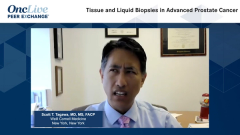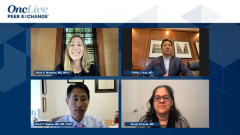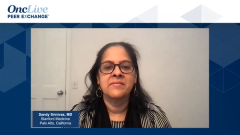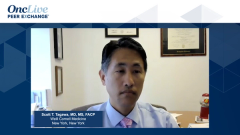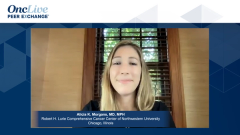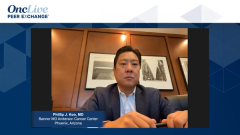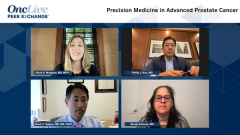
Oral GnRH Antagonist Therapy for mCSPC
Implications of treating patients with metastatic castration-sensitive prostate cancer with relugolix, an oral GnRH antagonist.
Episodes in this series

Alicia K. Morgans, MD, MPH: There’s 1 other thing I wanted to hear both of you comment on before we wrap up this section. We have the approval of a new oral GnRH [gonadotropin-releasing hormone] antagonist medication. It’s different in that it’s an antagonist. There’s only 1 other antagonist on the market, and it’s oral. Relugolix was approved in 2020. What are your thoughts? Are you using this agent? Are there any challenges you faced because it’s an oral agent or because you’re transitioning patients to a new agent? Scott, what’s your experience and thoughts on relugolix?
Scott T. Tagawa, MD, MS, FACP: It’s great to have available. It came out during the COVID-19 pandemic. It’s important to have because there are some patients who are on long-term ADT [androgen deprivation therapy] in combination with radiation. Even though we have long-duration injectables, as well as an annual implant, most are getting an injection every month or every 3 months. For those patients who were scared to come in or didn’t want to come in, that gives it an advantage. Besides the start and lack of a flare, there may be some additional differences in terms of tolerance, particularly from a cardiovascular point of view. There aren’t exactly level 1 data, but they’re good enough for me across data sets across drugs, particularly those with extra risk factors, because they all have some risk factors as men.
As a medical oncologist who treats a lot of metastatic castration-resistant prostate cancer or advanced disease, it’s very important to have combination agents. In my mind, it’s not completely practice-changing for everyone because the ADT is in the background and I want to add to it. I’m much more focused on what I’m adding. There could be additional costs with the oral formulation, at least in the United States health care system. There are also probably more drug-drug interactions than with an injectable, although that isn’t always completely significant.
Alicia K. Morgans, MD, MPH: Sandy, what are your thoughts?
Sandy Srinivas, MD: I agree with Scott. In my mind, the biggest asset relugolix brings in is the rapid testosterone recovery once you stop the drug. I think about the patients whom we give intermittent therapy to, especially those with nonmetastatic biochemical recurrence. With those patients, once you stop the LHRH [luteinizing hormone-releasing hormone] agonist, it takes a tremendous amount of time for the testosterone to recover. In that setting, I really like to use relugolix.
Like Scott, I’ve also used it in patients who have cardiac comorbidities. Even though the trial was done for only 1 year, some of the end points they picked were convincing that there was some decrease in cardiac comorbidities compared with an LHRH agonist. But I worry about the drug interaction, especially as we look at drugs such as DOACs [direct oral anticoagulants] and many of the arrhythmia drugs that our patients are on. I’d like a little more safety data on drug interaction. But in my practice, I will definitely use relugolix for patients whom I’m treating on an intermittent basis.
Alicia K. Morgans, MD, MPH: Great, thank you. To the point that you’ve both made about cardiac issues, when we’re thinking about intensifying using an AR [androgen reception]–targeted agent with ADT, we know there are some cardiac risks for agents like abiraterone and enzalutamide. Perhaps combinations that include a backbone that has a lower cardiovascular disease risk may ultimately prove to be helpful. But these are data we’re still waiting to see. This was really great. Thank you all for this lively discussion.
Transcript Edited for Clarity


